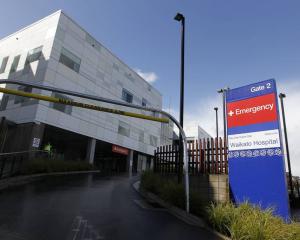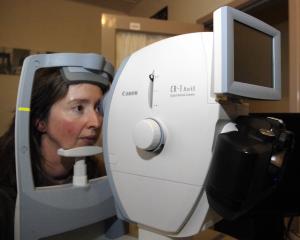Operations are expected to start later this year on 12 New Zealanders - possibly including some from Otago - with chest/stomach-level spinal injuries.
The Spinal Cord Society, a charity which has been funding research into stem cells, has won conditional approval to start clinical trials on paraplegic volunteers.
Dr Jim Faed, of Dunedin, the cell biologist and haematologist who manages the society's research programme and who will lead the clinical research team to undertake the trial operations, last night said the work was the beginning of a journey.
"In any journey, until you take the first step, you haven't started; and that's what I'm seeing here. You can do so much in animal work but at some point you need to go and check the data in humans," Dr Faed said.
There was still much to learn about the cell behaviour, but "the clinical trial we have planned, and the expected future trials, will help advance that understanding," he said.
Doctors were confident the first trial was the right step to take in moving to human research, as it will go further than research overseas and collect important information about the mechanisms for improvement.
Dr Faed said if the operations confirmed results found overseas while clarifying other key points identified by the research team, the society would be well placed to carry out trials of enhanced procedures.
The trials will cost $2 million, although the society has no government funding for them.
"I now believe it will be in my lifetime that people will go into hospital with a spinal injury and walk out a few months later just as though they'd experienced a broken leg," Spinal Cord Society chairwoman Noela Vallis said last night.
Society spokesman Tony Edmonds said it was preparing additional information requested for a Multi-region Ethics Committee meeting in Wellington next month, at which he was confident of receiving full approval.
He said other programmes overseas had convinced a growing number of medical experts that an effective treatment for spinal cord injuries was getting much closer.
Mr Edmonds said at least a dozen New Zealand labs were researching non-embryonic adult stem cells for conditions such as brain injury and arthritis.
The procedure to be applied in New Zealand had been carried out overseas in countries such as Portugal, Italy, Japan and China on well over 100 people with few negative side effects and varying degrees of improvement for each patient.
This had included recovering bowel and bladder function, through to extra feeling and movement in limbs.
The procedure involves extracting nerve tissue from a volunteer's nose and inserting this into the injured area of the spinal cord.
Ms Vallis said the procedure offered no controversy over the source of cells because it involved a transfer of the patient's own cells.
"It's similar to a skin graft, so there is no need for complex anti-rejection drugs," she said.
New Zealand has not yet approved embryonic stem cell research, although a paper on the issue is reported to be before Health Minister Tony Ryall.
•By Chris Morris an NZPA











